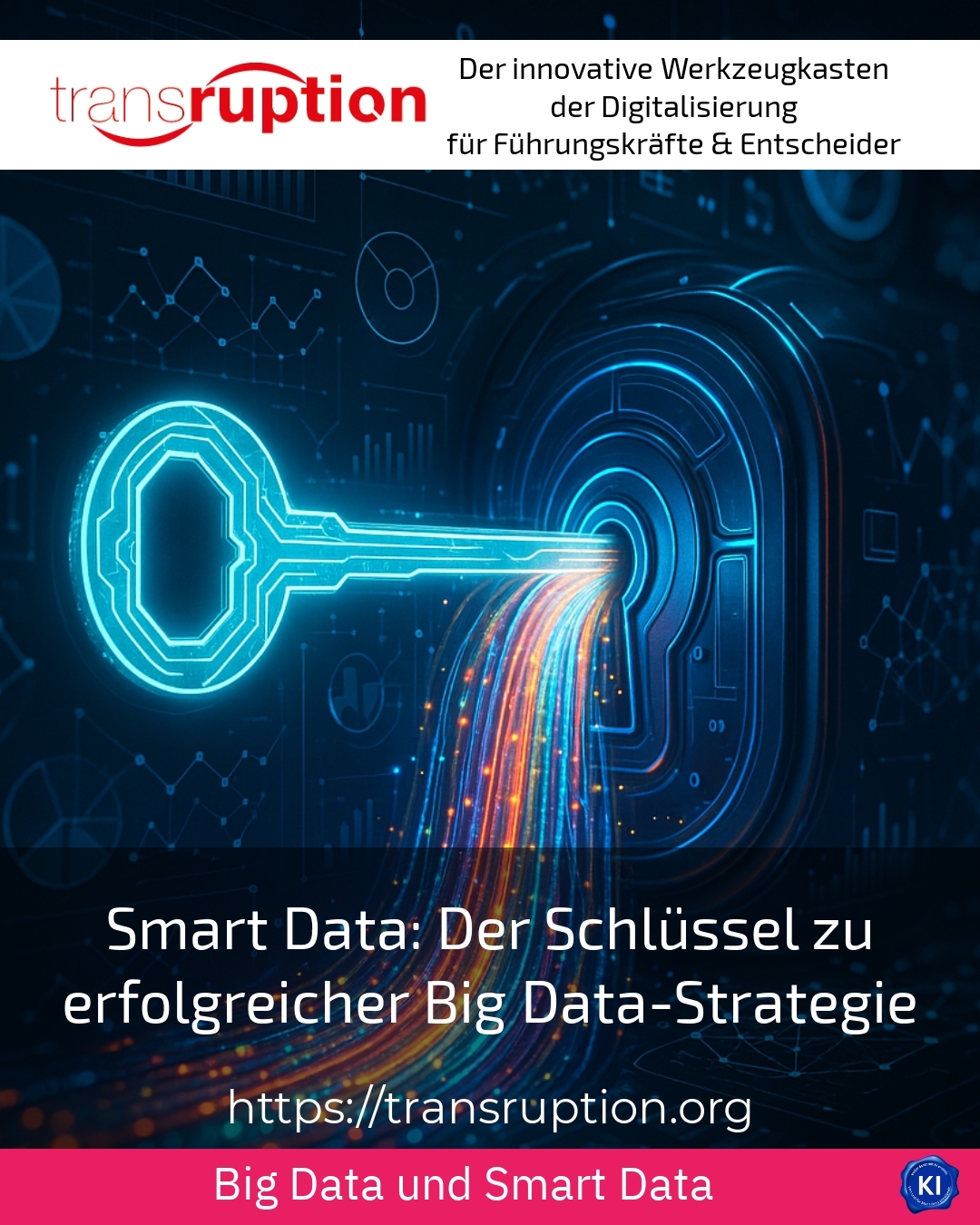In today's digitalised world, the handling of data is a decisive competitive factor. **Smart data** plays a key role here, because it is not simply a question of a mass of information, but of processing it in a targeted manner and utilising it sensibly. Only by analysing data intelligently can companies make efficient use of busy resources and make strategic decisions that really create added value.
Why smart data is the ideal basis for strategic decisions
The mere collection of large amounts of data, known as big data, limits companies if it is not processed correctly. Big data is like a raw material that first needs to be refined. This raw material is analysed and filtered to create **smart data** - high-quality, relevant and contextualised information that companies can use in a targeted manner.
In industry, for example, intelligent data sets enable early detection of production bottlenecks or quality deviations. A manufacturing company can thus reduce downtimes and optimise maintenance cycles. Telecommunications providers, on the other hand, use smart data to precisely analyse network utilisation and avoid capacity bottlenecks. Insurance companies also benefit from the targeted analysis of customer data in order to better assess risks and create customised offers.
The high quality and targeted nature of smart data are the reason why more and more companies are turning to it. Instead of unstructured volumes of information, these refined data sets provide an efficient basis for decision-making.
Smart data in everyday practice - examples from various industries
BEST PRACTICE at the customer (name hidden due to NDA contract) An international group from the automotive industry developed a predictive maintenance system with the help of smart data. Sensor information was analysed to predict the ideal time for repairs. This significantly reduced unplanned downtime and lowered maintenance costs.
In the healthcare sector, patient records and image data are intelligently linked to create personalised treatment plans. In this way, smart data helps doctors to make more precise diagnoses and manage therapies in a more targeted manner.
Another example from the retail sector shows how targeted smart data analysis of customer behaviour enables personalised offers in real time. By analysing purchase history and online interactions, retailers can design individual advertising campaigns that address customer needs more directly.
Tips for the successful use of smart data
The path to smart data begins with a clear data strategy. Companies should define which goals are to be achieved through intelligent data analysis. The following steps will help:
- Select data sources carefully and ensure the quality of the raw data
- Use targeted analysis methods such as machine learning to recognise relevant patterns
- Prepare findings in an understandable way and put them into practice
- Consider data protection and security as a basic requirement
In mechanical engineering, for example, one company reports that the use of smart data has increased the efficiency of production lines by more than 15 %. Another example from the telecommunications industry shows how network failures can be prevented at an early stage with the help of real-time data analyses.
Smart data as a partner for modern technologies
The combination of smart data with artificial intelligence (AI) increases the benefits enormously. Machine learning algorithms benefit in particular from selected, high-quality data sets, as they can recognise patterns faster and more precisely. This allows processes to be automated and innovations to be driven forward.
For example, financial service providers are using smart data in conjunction with AI to recognise fraud patterns at an early stage and protect transactions. The combination also enables personalised product recommendations and automated customer contact in e-commerce.
My analysis
**Smart data** is the decisive lever for gaining meaningful insights from the flood of large amounts of data. The quality and targeted utilisation of intelligently processed data helps companies to make more efficient processes and better decisions. The use of smart data thus becomes an integral part of a successful digital strategy.
Companies that not only collect their data, but also filter and interpret it sensibly, create the basis for sustainable growth and innovative strength. Practical experience often shows that smart data helps to master complex challenges and better recognise market opportunities.
Further links from the text above:
Smart Data: Definition, application and difference to Big ...
Big data vs. smart data: is more always better?
Data intelligence - big data and smart data for decision-makers
What is smart data? Definition and explanation of the term
For more information and if you have any questions, please contact Contact us or read more blog posts on the topic TRANSRUPTION here.















